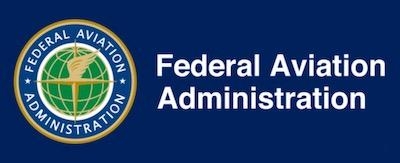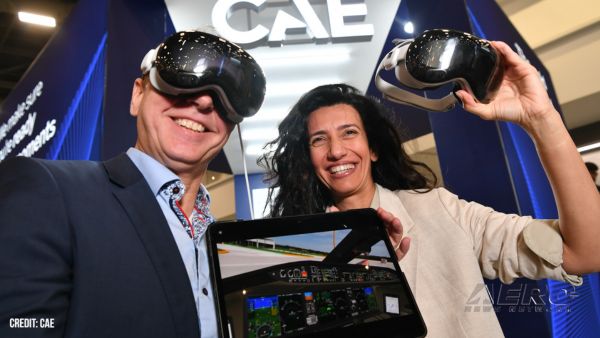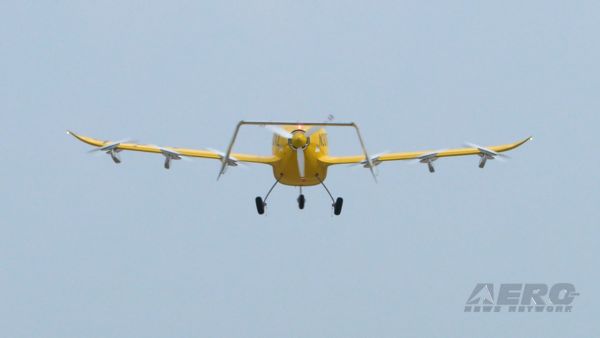Thu, Apr 04, 2019
Non-Equipped Aircraft Will Be Considered For Clearances On A Case-By-Case Basis, But It Won't Be Easy
The FAA has placed a notice in the Federal Register regarding its policy for issuing air traffic control (ATC) authorizations to persons seeking to operate aircraft that are not equipped with Automatic Dependent Surveillance-Broadcast (ADS-B) Out equipment in ADS-B airspace after Jan. 1, 2020.

The policy statement merely implements a provision in the 2010 rule regarding ATC authorizations and does not create any new requirement or burden on operators. The ADS-B Out final rule issued in 2010 requires aircraft flying in certain controlled airspace to be equipped with ADS-B avionics that meet the prescribed performance standards after Jan. 1, 2020.
In issuing the rule, the agency recognized that operators who do not routinely operate in the specified airspace might need to do so on rare occasions. ATC authorizations to deviate from the equipage requirement were established in the regulation to address these instances. These per-operation authorizations are not intended to support routine operations of non-equipped aircraft in airspace covered by the rule. The FAA noted in the final rule that authorizations would be considered on a case-by-case basis and might not be granted in all instances. The FAA anticipates that operators who routinely fly in airspace covered by the ADS-B rule are taking the necessary steps to equip in order to ensure there is no disruption to their operations.
The FAA does not plan to grant authorization requests for routine flights from scheduled operators seeking to fly non-equipped aircraft in rule airspace.
Operators who want to fly in airspace covered by the rule but are not equipped with ADS-B Out avionics must request and obtain preflight authorization. The request must be made at least one hour before the proposed operation. An operator who flies a non-equipped aircraft in ADS-B airspace without obtaining a preflight authorization will be presumed in violation of the regulations.
The agency will not issue in-flight authorizations to operators of non-equipped aircraft, and ATC facilities will not accept requests for authorizations by telephone. An ATC clearance does not constitute an authorization.
If an authorization request is not approved prior to departure, the operator should assume the authorization is denied. It is highly unlikely that authorizations will be approved for airspace at busy airports where capacity is constrained. Others reasons for which authorizations may not be granted include workload, runway configurations, air traffic flows and weather conditions.
(Source: FAA news release)
More News
States That Current Process is Damaging National Aerospace Development US Senator Jerry Morgan is pushing the FAA to speed up the process for rocket launch licensing. He argues tha>[...]
From 2015 (YouTube Edition): Model Aviator Aims For Full-Scale Career While at the 2015 Indoor Electric RC Festival, referred to as eFest, ANN CEO and Editor-In-Chief, Jim Campbell>[...]
Dave Juwel's Aviation Marketing Stories ITBOA BNITBOB ... what does that mean? It's not gibberish, it's a lengthy acronym for "In The Business Of Aviation ... But Not In The Busine>[...]
Aero Linx: Cardinal Flyers Online The Cardinal Flyers Online Web site was created and is maintained by me, Keith Peterson. My wife Debbie and I have owned a 1976 RG since 1985. Wit>[...]
Clearance Void If Not Off By (Time) Used by ATC to advise an aircraft that the departure release is automatically canceled if takeoff is not made prior to a specified time. The exp>[...]
 Senator Pushes FAA to Accelerate Rocket Launch Licensing
Senator Pushes FAA to Accelerate Rocket Launch Licensing Classic Aero-TV: RJ Gritter - Part of Aviations Bright New Future
Classic Aero-TV: RJ Gritter - Part of Aviations Bright New Future Aero-FAQ: Dave Juwel's Aviation Marketing Stories -- ITBOA BNITBOB
Aero-FAQ: Dave Juwel's Aviation Marketing Stories -- ITBOA BNITBOB ANN's Daily Aero-Linx (10.27.24)
ANN's Daily Aero-Linx (10.27.24) ANN's Daily Aero-Term (10.27.24): Clearance Void If Not Off By (Time)
ANN's Daily Aero-Term (10.27.24): Clearance Void If Not Off By (Time)



